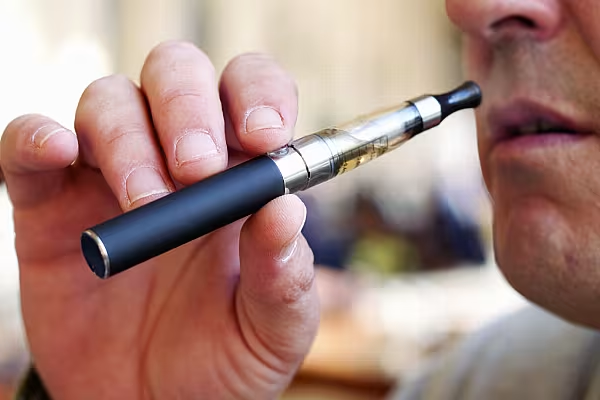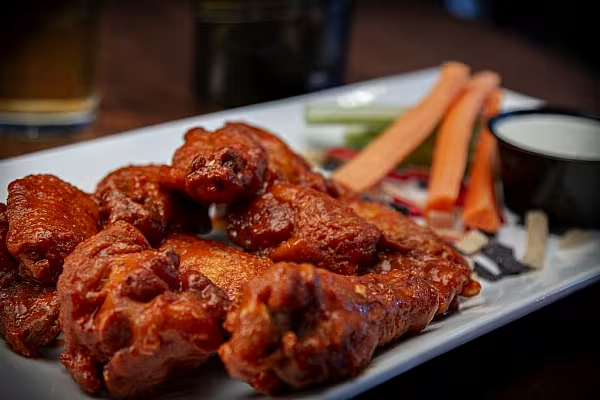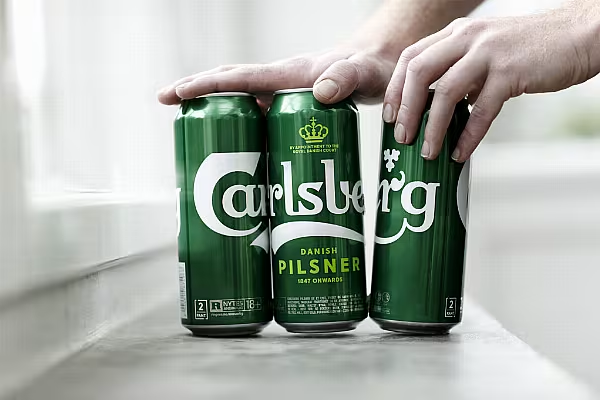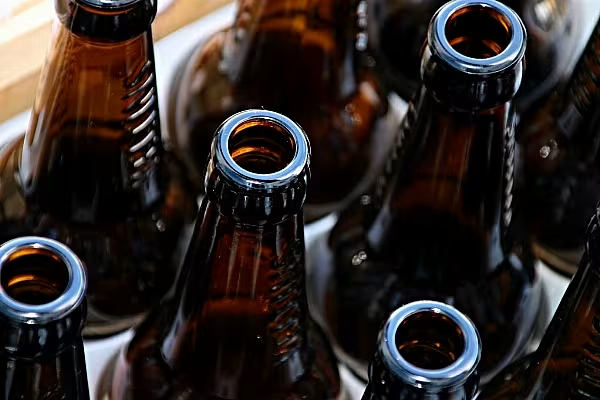New data from IRI has shown the level to which German consumers adopted a 'Hamsterkäufe' (panic buying) mentality as the coronavirus epidemic gained traction in the country.
While the country saw its first COVID-19 case in week five of 2020, at the end of January, it wasn't until week nine (week commencing 24 February) that sales started to show a significant increase, with FMCG value sales rising 16.0% compared to the same week the previous year.
By week 11, IRI data showed, that sales uplift had evolved to a state of panic buying, with a 35.4% increase compared to the same week the previous year.
During week 11 (9-15 March), the WHO declared COVID-19 a pandemic, while Germany registered its first deaths; a situation that led to supermarket sales rising 33%, hypermarket sales rising 38% and discounter sales rising 30% for the week.

Retail stores in Bavaria, where the outbreak was first reported, saw the biggest sales increase in week 11, rising by 42%, followed by Baden-Wuerttemberg (+40%) and the Mid region (+39%).
Category Growth
Among the categories to see the biggest increases in week 11 were Damp Cleansing Tissues, which saw a 474.6% increase in sales, Hygiene/Sanitary Cleaners, which were up 251.3%, and Soap, which saw sales rise 239.7%.
Long life foods such as pasta, noodles, rice, flour and convenience foods also saw an uplift in sales in the period.
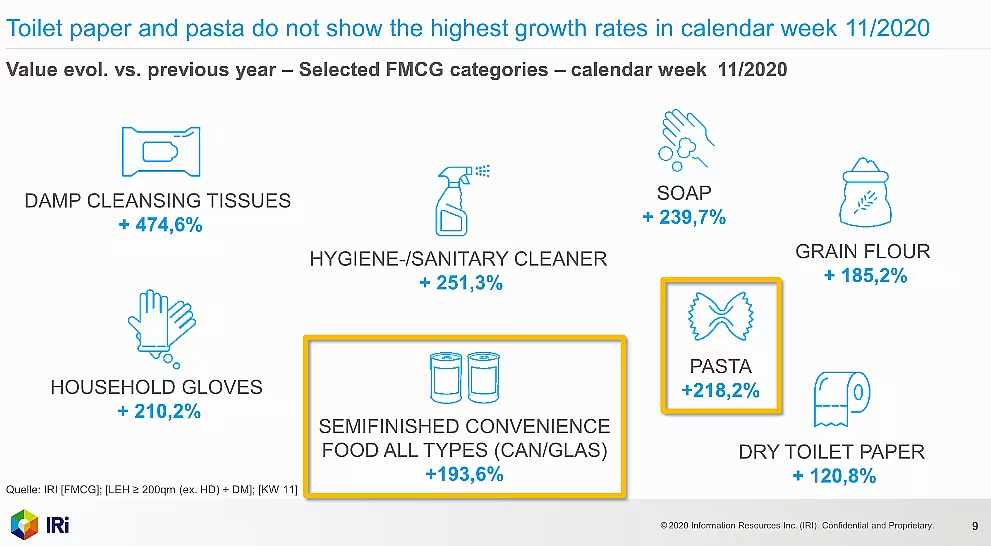
The full research can be found by clicking here.
© 2020 European Supermarket Magazine – your source for the latest retail news. Article by Stephen Wynne-Jones. Click subscribe to sign up to ESM: The European Supermarket Magazine.





